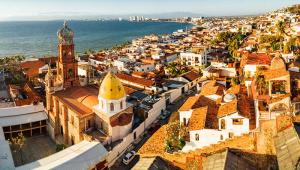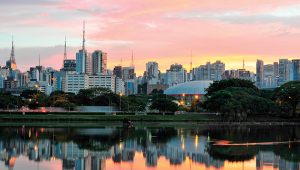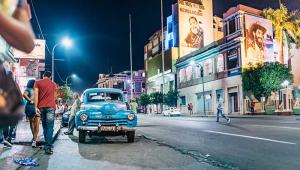There is a desperate refrain among the insecure citizens of Brazil: “A good bandit is a dead bandit”.
Such are the levels of crime that a survey this year indicated that 50% of people believe this.
The country is experiencing a crime wave that is propelling the very unsavoury populist Jair Bolsonaro towards the presidency.
A far-right former soldier with fond memories of the military dictatorship that ruled from 1964 to 1985, Bolsonaro is the frontrunner to win a presidential runoff on 28 October.
While this maverick taps into deep discontent with Brazil’s ailing economy and corrupt political elite, he is also exploiting hunger for an end to violent crime.
Bolsonaro talks tough, pledging to slash record murder rates by reintroducing the death penalty, militarising the police, and ripping up gun laws.
This medieval wishlist is a symptom of the challenge crime now poses for Brazilian development.
A costly epidemic
Statistically, Brazil resembles a war zone. In 2017 it suffered a record 63,880 homicides and between 2006 and 2016 a staggering 553,000 people lost their lives to violence.
A crime spree has already prompted the military to take over policing in Rio, Bolsonaro’s fiefdom.
The populist’s electoral lead demonstrates that his tough message plays well with voters – bloodily bolstered when he survived a stabbing.
Nonetheless, the scourge of crime in Brazil does not diverge from the norm in Latin America, where it has reached epidemic levels.
The region is the most violent on the planet, with a homicide rate four times the global average, accounting for 33% of the world’s murders despite hosting just 9% of its population.
Such is the scale of homicide in countries such as Brazil that its spiralling costs now act as a brake on development.
Violence incurs huge social costs as people change their behaviour, businesses cut investment and lose productivity, and governments struggle with collateral damage.
But crime is also a huge drain on growth, costing Latin America 3% of GDP – a mere $236 billion, or $300 per capita.
The 5% of public expenditure devoted to crime is twice that of developed regions, and about 42% of the overall cost of crime is direct public spending on police, prisons and courts.
Brazil faces the highest costs of crime in the region in nominal terms, incurring annual losses of $76bn – 4.4% of GDP. Soaring murder rates alone have cost $120bn in lost productivity since the 1990s.
Institutional failures
An initial reflex is to blame crime on poverty, yet in Latin America the statistics are counterintuitive: since 2000 violence has risen while poverty has fallen.
This suggests that the causes of Brazil’s problems reside elsewhere, in institutional failures set against a backdrop of economic crisis.
In Latin America, budgets have been tightened across the board since 2014, and austerity has been particularly tough in Brazil.
Evidence suggests that crime can peak during economic crises and a deep recession – the worst on record – has limited the Brazilian government’s ability to tackle it.
The relationship between crime and public expenditure is complex, and cuts to security budgets do not translate directly into lawlessness.
But in Latin America, a key factor compounding crime is inefficient institutions.
The Economic Commission for Latin America and the Caribbean (ECLAC) says most security initiatives fail because they are badly run, have low budgets, and are poorly staffed.
The police and courts are inept: fewer than 10% of homicides are solved and 60% of prison inmates are simply awaiting trial.
Brazil is a textbook case: while annual expenditure on security tripled between 1996 and 2015, killings rose relentlessly.
This explains why large swathes of the population turn their backs on the state: in 2014, 48% of the total cost of crime in Brazil reflected private spending on security.
Contradictions
Institutional failures offer perfect conditions for populists.
If we are to believe the press, the masses now lining up to support Bolsonaro have lurched to the right in a rejection of the left-of-centre Workers’ Party (PT) that delivered them unprecedented social gains while in government between 2003–16.
The reality, however, is far more nuanced, with “Bolsonarismo” feeding off the contradictions generated by rampant crime in an unequal society with rotten institutions.
Studies globally indicate that crime hurts the poor disproportionately.
Latin America’s urban poor are by far the most likely victims of homicide. In 2015, 47 of the 50 cities with the highest murder rates in the world were in the region. Brazil is home to seven of the world’s 20 most violent cities.
Race correlates to income in the region, where 75% of murder victims are black or brown. In Brazil, blacks are not only the poorest social group, but twice as likely as whites to meet a violent death.
And it is Latin America’s poor who are forced to change their behaviour because of crime in ways that stunt economic opportunities.
Given this, Bolsonaro is pushing at an open door – promising simple solutions freed from due process to citizens exasperated by an ineffectual state.
Yet those promises will hurt the poor disproportionately.
On the one hand, notorious police brutality against poor and black people has prompted Amnesty International to speak out repeatedly about extrajudicial executions.
On the other, Bolsonaro’s nostalgia for military rule and racist, misogynistic and homophobic outbursts reveal how crime is eroding civic values of tolerance and equality that are vital for the survival of Brazil’s democracy.
Since the generals returned to the barracks, it is that democracy which has enabled poor Brazilians to enjoy the fruits of those values for the first time.
So every poor Brazilian concluding that “a good bandit is a dead bandit” before voting for Bolsonaro threatens to block their only route out of poverty.
In short, Brazil’s poor need Jair Bolsonaro like a hole in the head. We can only pray that it is not a bullet hole.















